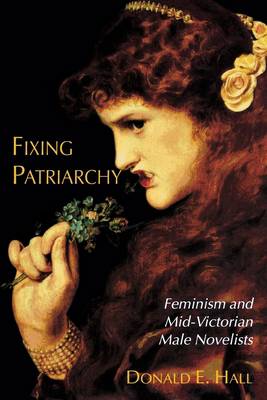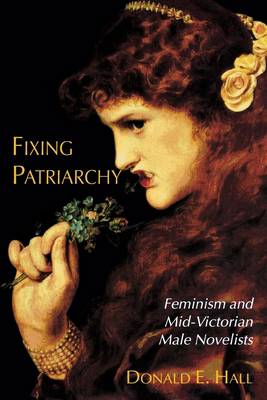
- Retrait gratuit dans votre magasin Club
- 7.000.000 titres dans notre catalogue
- Payer en toute sécurité
- Toujours un magasin près de chez vous
- Retrait gratuit dans votre magasin Club
- 7.000.0000 titres dans notre catalogue
- Payer en toute sécurité
- Toujours un magasin près de chez vous
Fixing Patriarchy
Feminism and Mid-Victorian Male Novelists
Donald E Hall, Joan HelmichDescription
The 1840s, 50s, and 60s: three decades during which the British feminist movement saw some of its most intense activity of the nineteenth-century, and readers find some of the most monstrous, troubling representations of women by male writers in all of literary history. In Fixing Patriarchy, Donald E. Hall suggests that feminism at mid-century posed intertwined social, economic, political and psychological threats to patriarchy. Hall explores the metamorphic nature of Victorian definitions of masculinity and femininity through an analysis of male authors such as Dickens, Tennyson, Kingsley, Thackeray, Hughes, Collins, and Trollope in dialogue with Victorian feminists and other women writers.Synthesizing historical research with pertinent queer, feminist, post-structuralist, and materialist theories, Hall locates both startling admissions of moral fallibility and violent strategies of retrenchment and containment of this perceived threat to the male social body. Fixing Patriarchytraces parallels among Victorian discourses of religion, science, economics, and aesthetics, as it explores a cultural dynamic of un-fixedness and heightened desires for fixity.
Spécifications
Parties prenantes
- Auteur(s) :
- Editeur:
Contenu
- Nombre de pages :
- 416
- Langue:
- Anglais
Caractéristiques
- EAN:
- 9780814735367
- Date de parution :
- 01-11-96
- Format:
- Livre relié
- Format numérique:
- Genaaid
- Dimensions :
- 152 mm x 229 mm
- Poids :
- 503 g

Les avis
Nous publions uniquement les avis qui respectent les conditions requises. Consultez nos conditions pour les avis.






